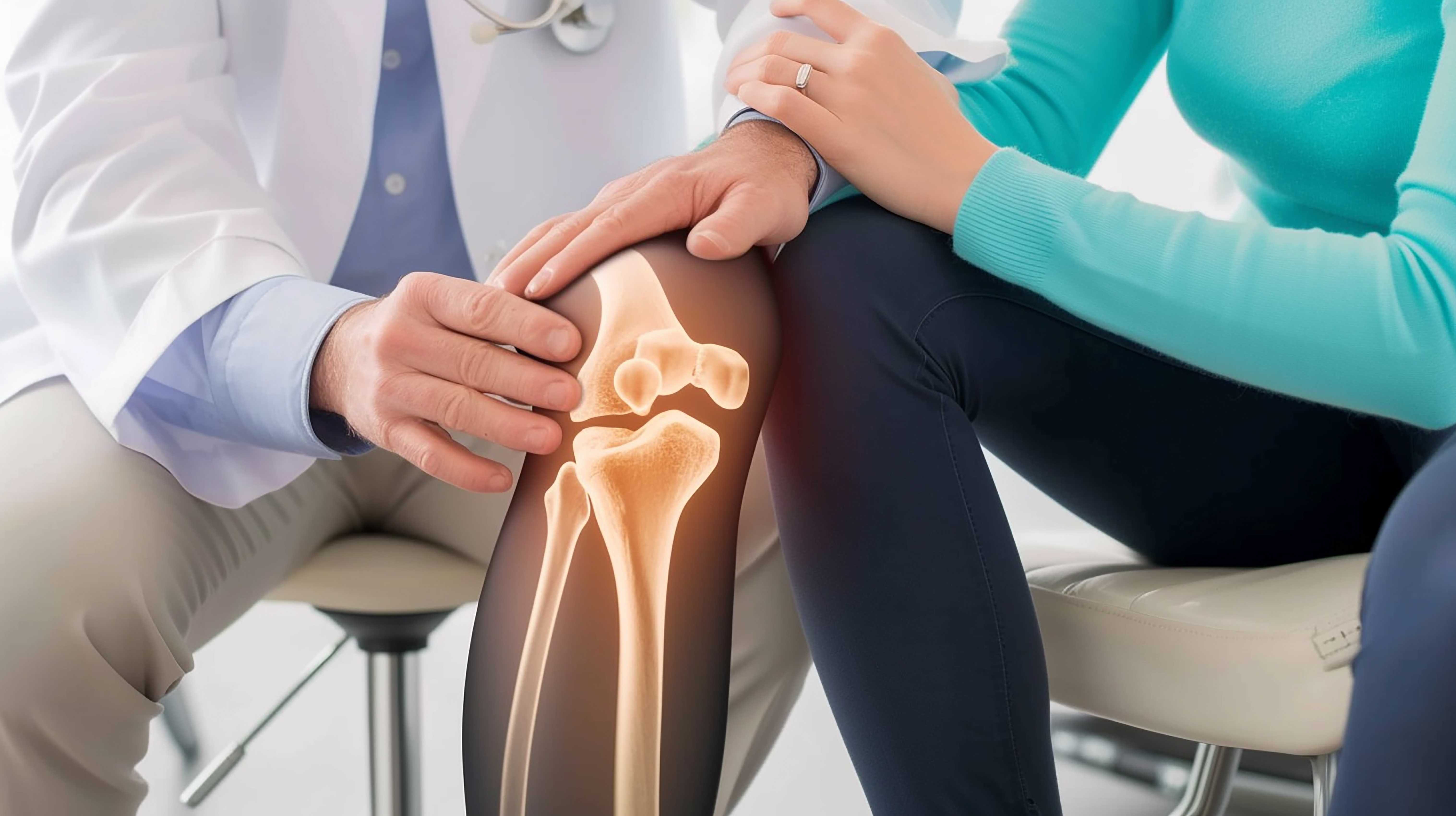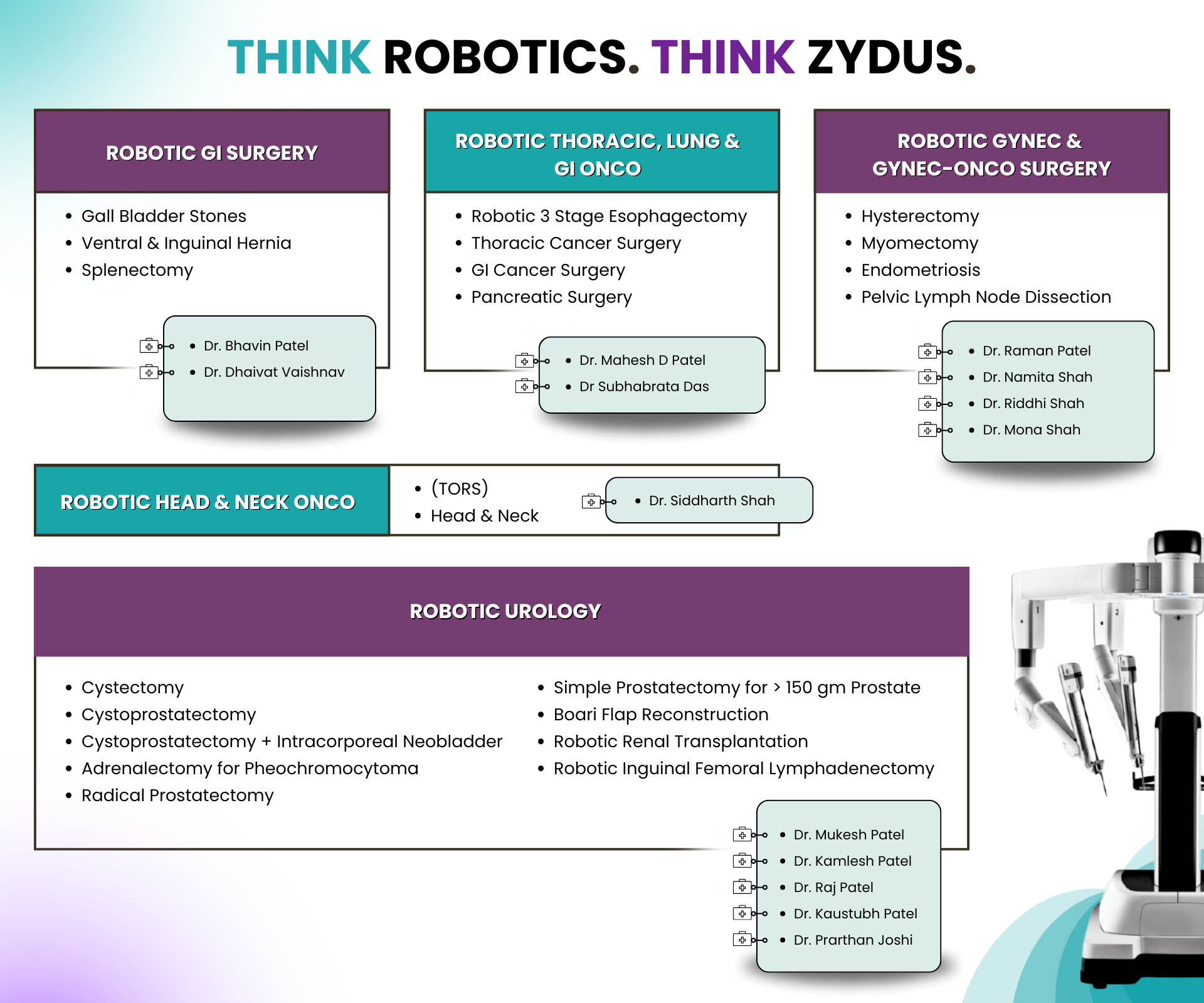
Knee Replacement
- Medical Specialities
- Orthopaedics, Trauma & Joint Replacement
- Knee Replacement
-
Total Knee Replacement and Partial Knee Replacement
-
Joint Replacement Solutions for Long-Term Mobility
-
Knee replacement surgery, including total knee replacement (TKR) and partial knee replacement, replaces worn or damaged knee joints with artificial components to relieve pain and restore function. This surgery is commonly considered when non-surgical options fail, and arthritis or injury has severely damaged the knee joint.
-
When Should Knee Joint Replacement Be Considered?
-
A knee joint replacement is typically recommended if:

- You’ve tried non-surgical treatments (medication, injections, therapy) without sufficient relief.
- Your knee pain is severe even at rest.
- The joint damage is advanced (e.g., due to osteoarthritis, rheumatoid arthritis, or post-traumatic arthritis) and is impacting your daily life.
-
Total Knee Replacement Surgery
-
During total knee replacement, the damaged articular cartilage and bone are removed and replaced with metal and plastic components to recreate knee function. The procedure often takes around 1-3 hours, depending on individual factors. Complications are uncommon but may include infection, blood clots, or stiffness. However, if the procedures are done robotically, they have their advantages like less blood loss, soft tissue protection, CT-based planning helps clear view and pre-planning to avoid any unwanted complications at the time of the surgery.
-
This operation is carried out by experienced knee replacement surgeons at a reputed knee replacement hospital in Ahmedabad, like Zydus.
-
Partial Knee Replacement: Unicompartmental Knee Replacement (UKR)
-
When only partial knee is damaged, a partial knee replacement may be a viable option. This approach preserves more of the native bone and ligaments, leading to:
-
This operation is carried out by experienced knee replacement surgeons at a reputed knee replacement hospital in Ahmedabad, like Zydus.
- Less blood loss
- Less physiotherapy time
- A more natural knee feel and quicker recovery
-
However, this option requires careful patient selection and may not be suitable for all individuals.
-
Recovery and Outcomes
- Hospital stay: usually 4-10 days for TKR.
- Within the first few days, you’ll work with a physiotherapist and begin weight-bearing with a walker or stick.
- By 3-6 weeks, many people resume most normal leisure activities; complete resolution of swelling and pain may take up to 3 months. These recovery timelines align with international standards.
-
With developments like robotic knee replacement in Ahmedabad, many patients experience enhanced precision, reduced soft tissue trauma, and faster recovery.

Search Doctor / Diseases
The Transplant Center of Gujarat
-
LIVER TRANSPLANT
-
200+ successful transplants done
-
A full-time dedicated team of 20+ members of Liver Transplant Surgeons, Hepatologists, Intensivists and Anaesthetists
-
Exclusive Class 100 Modular Liver OT and Liver ICU with strong infection control standards
-
KIDNEY TRANSPLANT
-
300+ successful transplants completed by the experienced and dedicated team of Senior Consultants in Nephrology and Urology
-
State-of-the-art 50 bed advanced Dialysis Centre with facilities for CRRT, SLED, HDF and CytoSorb
-
HEART TRANSPLANT
-
Highly experienced team of Heart Transplant Surgeons and Cardiologists
-
State-of-the-art infrastructure with exclusive Cardiac Critical Care Unit, ECMO Facility, Advanced Cath Lab and Left Ventricular Assist Device (artificial heart) Facility
-
BONE MARROW TRANSPLANT
-
200+ Haematopoietic Stem Cell Transplants at hi-tech BMT Unit
-
Highly experienced Haematologist, Intensivists and BMT-trained Staff, supported by Radiation Oncology Department with TBI treatment


